The Council of Agriculture (COA) yesterday reiterated its commitment to preventing Chinese garlic from entering Taiwan through a third location, particularly countries in Southeast Asia.
As garlic is one of the 830 items on a list of banned Chinese products, the council said the government was doing everything possible to avoid shipments of Chinese garlic from entering Taiwan via a third country.
The council’s Agriculture and Food Agency notified local importers in a mid-November meeting that strict measures would be adopted to screen for Chinese garlic.
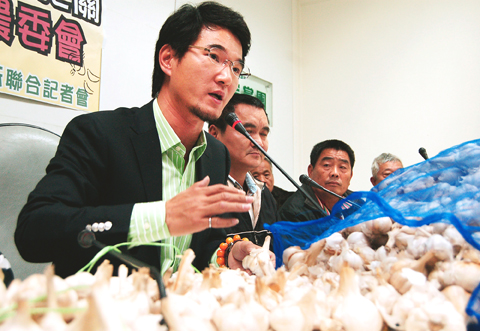
PHOTO: CNA
Importers are required to attach documents — including transport contracts, customs clearance reports and government papers — to verify the origins of their imported goods, as well as documents to identify the producers, producing venues and the size of plantation areas, the council said.
Imported garlic will be sent to Taiwan’s overseas office for examination if it is hard to identify its place of production, it said.
The COA said it also had suggested the Bureau of Foreign Trade ban garlic imports from Vietnam because large amounts of Chinese garlic are shipped from there to Taiwan.
The council’s statement came after hundreds of garlic farmers from Yunlin County staged a protest in front of the county government headquarters on Monday.
The farmers dumped boxes of China-produced garlic that were shipped to Taiwan via Vietnam to protest against what they said was the government’s lack of concern for farmers’ livelihoods.
Some of the protesting farmers said that Vietnam couldn’t cultivate enough garlic to meet its own demand, not to mention the possibility of exporting it.
If Chinese garlic continues to enter Taiwan from Vietnam, it would deal a heavy blow to locally produced garlic, which is set to hit the domestic market one month later, a chief delegate of a local farmers’ association said.
Garlic is one of the major agricultural products in central and southern Taiwan, with 5,400 hectares of farmland in the nation devoted to its cultivation.
Garlic production in Taiwan is valued at about NT$2.1 billion (US$66.03 million) annually, the COA said.
Garlic grown in Yunlin County accounts for 85 percent of the country’s production.
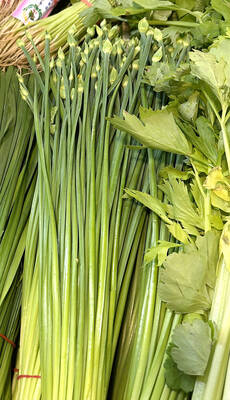
The Taipei Department of Health’s latest inspection of fresh fruit and vegetables sold in local markets revealed a 25 percent failure rate, with most contraventions involving excessive pesticide residues, while two durians were also found to contain heavy metal cadmium at levels exceeding safety limits. Health Food and Drug Division Director Lin Kuan-chen (林冠蓁) yesterday said the agency routinely conducts inspections of fresh produce sold at traditional markets, supermarkets, hypermarkets, retail outlets and restaurants, testing for pesticide residues and other harmful substances. In its most recent inspection, conducted in May, the department randomly collected 52 samples from various locations, with testing showing
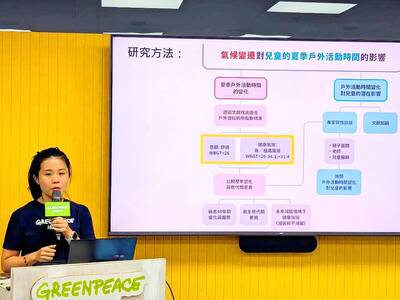
The government should improve children’s outdoor spaces and accelerate carbon reduction programs, as the risk of heat-related injury due to high summer temperatures rises each year, Greenpeace told a news conference yesterday. Greenpeace examined summer temperatures in Taipei, New Taipei City, Taoyuan, Hsinchu City, Taichung, Tainan and Kaohsiung to determine the effects of high temperatures and climate change on children’s outdoor activities, citing data garnered by China Medical University, which defines a wet-bulb globe temperature (WBGT) of 29°C or higher as posing the risk of heat-related injury. According to the Central Weather Administration, WBGT, commonly referred to as the heat index, estimates
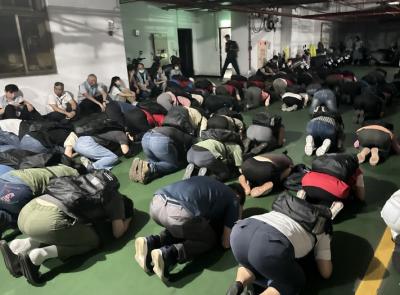
Taipei and other northern cities are to host air-raid drills from 1:30pm to 2pm tomorrow as part of urban resilience drills held alongside the Han Kuang exercises, Taiwan’s largest annual military exercises. Taipei, New Taipei City, Keelung, Taoyuan, Yilan County, Hsinchu City and Hsinchu County are to hold the annual Wanan air defense exercise tomorrow, following similar drills held in central and southern Taiwan yesterday and today respectively. The Taipei Mass Rapid Transit (MRT) and Maokong Gondola are to run as usual, although stations and passenger parking lots would have an “entry only, no exit” policy once air raid sirens sound, Taipei
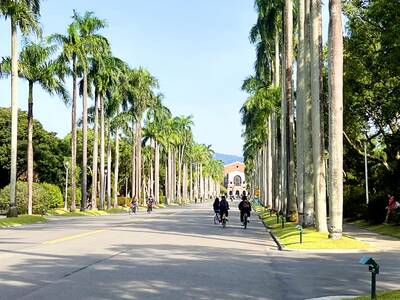
Taipei placed 14th in the Quacquarelli Symonds (QS) Best Student Cities 2026 list, its highest ever, according to results released yesterday. With an overall score of 89.1, the city climbed 12 places from the previous year, surpassing its previous best ranking of 17th in 2019. Taipei is “one of Asia’s leading higher-education hubs,” with strong employer activity scores and students “enjoying their experience of the city and often keen to stay after graduation,” a QS staff writer said. In addition to Taipei, Hsinchu (71st), Tainan (92nd), Taichung (113th) and Taoyuan (130th) also made QS’ list of the top 150 student cities. Hsinchu showed the